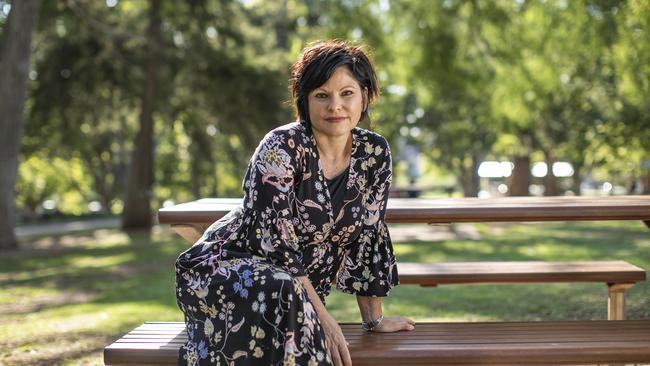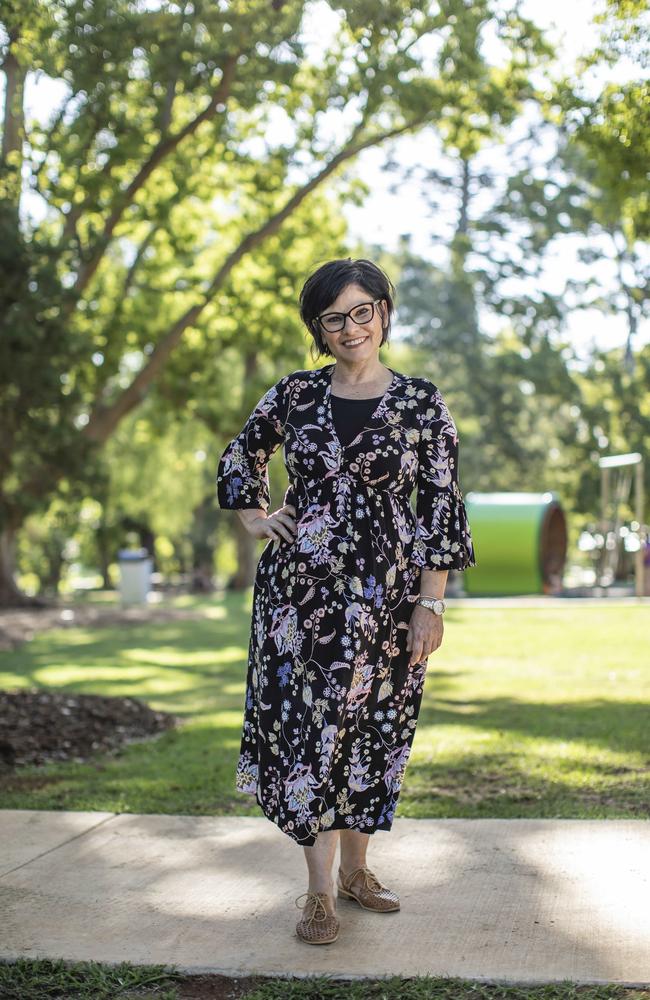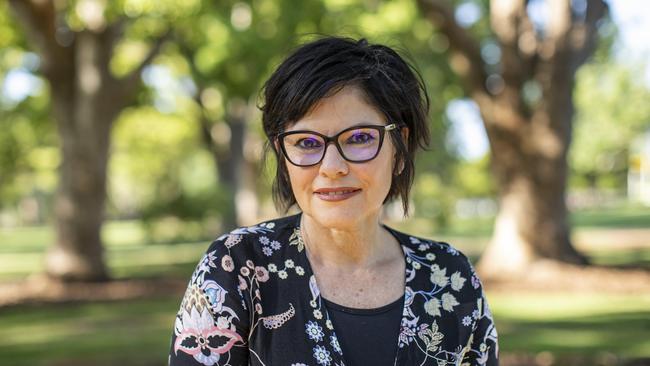Death doula: My job is to help people to have a good death
“She was only a young girl and I could tell she was dying … she died two days later.’’ Queensland death doula Tracey Roberts says it is her job to be there for people as they die and to help them come to terms with the process.

U on Sunday
Don't miss out on the headlines from U on Sunday. Followed categories will be added to My News.
TRACEY Roberts wakes up each morning knowing she will help someone die.
She stares into people’s eyes and knows instantly that they are about to die, before their family even know it.
Her job is talking about death over a cup of tea, or not mentioning it at all because some refuse to look down the tunnel of darkness at what lies ahead.
But what does lie ahead for the dead? That question weighs on the shoulders of every end of life doula – or ‘death doulas’ – a burgeoning industry that is sweeping the world.
The non-medical and practically unknown role provides emotional, social, and practical support to those in their final days, some who have been diagnosed with just days to live.
It is a job that Roberts describes as “not everyone’s cup of tea” – but its hers.
“It’s sort of progressed now to helping people with advanced care planning, helping people stay at home, helping people to die at home, education, its more or less supporting them in a non-medical way,” she says.
‘I put it on and my world changed’: Robin Bailey reveals most-loved outfit
U on Sunday: Fran Whiting’s caravan holiday in Queensland

After noticing a gap in the system that has no support for people, particularly those looking to die at home, Roberts, based in Toowoomba, started The Last Leaf in the hopes of helping people in their final days.
With a 40 year nursing career and 20 years in palliative care, Roberts has seen hundreds of people die before her.
But each death is different.
Some are children, some are old. Some tell stories before they die, others pass peacefully.
“They share stories, some people have visions, a lot of people will put that down to ramble, they say that sometimes if the patient is saying ‘I’ve seen this’, or ‘that person came to visit me’, they’re visions,” she said.
“I don’t believe in God but I do believe in something, as in something is happening.
“It’s a different job and even doing this is so different to my nursing. I’ve looked after hundreds of people dying but I’ve never actually sat with someone for hours and hours.
“I’ve never been in that position – in this job, sitting with someone for hours and hours, is just pretty amazing whereas with nursing you’re in and out and you’re only there for a little while. But for the whole day, it’s pretty amazing. It’s not everyone’s cup of tea, but it’s my cup of tea.”
Belinda Maher, who was diagnosed with cancer with only three weeks to live, turned out to be one of Roberts’ longest clients – spending several months with her as she came closer to death. The 69-year-old lived to April, with the support of Roberts, while her family was overseas during COVID-19.

James Maher, Belinda’s son, said in hindsight, having Tracey with his mother while he was in Japan during the pandemic was “the best thing” the family could have done.
“She never had been sick a day in her life … she was diagnosed with three weeks to live,” he recalls.
“Their relationship was so strong … she actually asked if Tracey could be there in the end. It was amazing.
“(Mum) really enjoyed the conversations she had, she was very comfortable with Tracey. She (Tracey) relayed a number of conversations they had and it was eye opening to hear the conversations they had – some of it mum had never spoken to me about.”
It is hope that gets sick people out of bed, Roberts says, but soon reality needs to kick in.
“I find the younger people really give it their all because they don’t want to die. They want to be around. They will go right to the end,” she says.
“When you think there’s nothing left in them, there’s something left in them.
“You don’t want to see young people die, young people with children and husbands and mothers and fathers. It’s tough for them.”
But the most challenging aspect of the job is when people struggle to accept they are dying, holding onto the “little miracle around the corner”, Roberts says.
“You want to be able to talk to them about planning for a good death but they’re still trying to waste good energy on keeping people alive or the patient staying alive,” she says.
“Hope is what gets people out of bed, but it’s challenging for me because you want to prepare people, you want to give people this information, but they just don’t want to hear it and there’s nothing you can do about it.
“I think when you walk in and have that initial conversation, you know whether they’re going to close you off. The young girl I went to see the other week that was dying and we walked into her bedroom and her mum and husband were there and I just needed to tell them, ‘my god, you’re going to die soon’”.

Roberts said she asked if the family could have a talk about the situation, when the woman instead suggested they could go into the kitchen.
“She didn’t want to know about it. She would have known she was dying and I do believe they know but they don’t like to talk about it with their carers because they don’t want to upset them,” she says.
“The family just had no idea so I just had to sit there and talk to them about it and make them aware that it was close and what they could be doing because they just didn’t know.
“She died two days later – because she had been so strong for years and years and years and not talked about it with family, they hadn’t talked about it.
“I said to her mum, ‘she is dying, do you know she’s dying?’ and she said ‘yes, I do’. I think they just needed to hear it from me.”
Roberts recently supported a 13-year-old boy that died of a brain tumour.
“That was tough, that was hard – that was with my hospital job as a nurse. It’s just amazing the strength families have with those people,” she says.
“Some (cases) are tough but it just makes me realise if I’ve helped someone, which I know I have, I feel okay.”
Roberts said she hoped soon death doulas will become more accepted in hospital and hospice environments and part of the broader health community to help people in their final stages of life.

